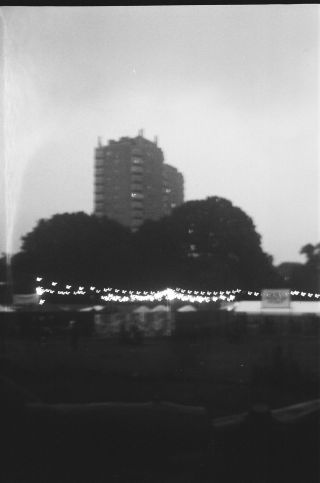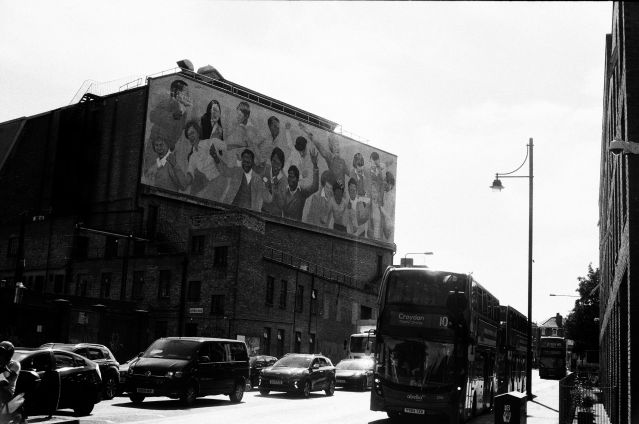Therapy
A Vision for Political Psychoanalysis
The Red Therapy Collective: The psyche is political, the political is psychic.
Posted August 9, 2023 Reviewed by Lybi Ma
Key points
- Politics and psychology are often tangled up.
- Radical approaches to psychotherapy have radical political effects.
- Here's another look at the anti-psychiatry movement.
From the 1950s onwards, the English-speaking world saw some wide-reaching attempts to deinstitutionalise and de-medicalise psychiatric practice. Representatives of this movement were, among others, R.D. Lang and David Cooper, who came up with the term anti-psychiatry.
Cooper founded the Philadelphia Association, which set up community houses offering psychotherapy with a political vision, versions of which still run today. Laing’s theoretical work prompted other projects, such as People, Not Psychiatry, set up in 1969 by Michael Barnett, and the Red Therapy Collective, which was active throughout the 1970s.
The Red Therapy Collective, in particular, stood out for its ground-breaking ideas grounded in the therapeutic practice of Freud and Reich. Psychoanalysis, the collective thought, is an integral element of political action.

In 1973, the collective set up a living and practice situation–sharing cooking, housework, childcare, and sometimes relationships–in Mile End, London, after being loosely organised around the Hackney neighbourhood of East London. Their sessions focused on Reichian ideas of regression and Fritz Perls-type Gestalt therapy and practices of psychodrama.
Politicised psychotherapy, the collective thought, has the potential to expose the political forces that shapes the normative maps with which we all navigate the social landscape. In that way, the group integrated into their practice the antinomies between individual and social psychology, politicising psychology, and psychologising politics.
In practice, the collective came up against the conventional forms of psychiatric and psychotherapeutic treatment that were available in the 1970s. These were largely pharmacology or electric shocks for the poor, and expensive professional psychotherapy for the better off–itself a political issue.
In reconciling sociality politics with therapeutic practice, the collective affirmed that there can be no social sphere without individual psychology; that social forces inevitably play out in the individual’s psyche; that the choice isn’t between either social or individual psychology, but both; that the study and practice of psychology is a study and practice of both the social and the individual.
“The policeman in the street is why we need a revolution; the policeman in your head is why it doesn’t happen,” proclaims the collective in many of their pamphlets.
In short, the psyche is political, and the political is psychic.
In their extraordinarily electrifying pamphlet, The Radical Therapist, the Red Therapy Collective describes their psycho-political programme succinctly:
“The ideology of capitalist society, in the guise of bourgeois psychology, tries to persuade us that emotional and mental problems are just in our individual psyches, and that they are separate and different from health problems, economic problems, social, spiritual or political problems,” 1978, p. 10.
This insight itself–essentially that political forces have shaped how we see the architecture of the psyche had a therapeutic effect. (Freudian psychoanalysis is commonly considered a distinctly modernist project, and thus inherently connected to the socio-political culture of 19th-century Europe). Some of the members claimed:
“What I thought to be my own personal problems and experience were in fact the very fibre of capitalism, and that revolutionary politics has as much to do with relations between myself and my parents as my relationships with bosses. Every time I work on a so-called ‘personal’ problem I feel closer to those around me and feel the Marxism that before I just understood,” ibid. 51.
The members of the Red Therapy Collective understood there are cracks in the pearls of capitalist ideology. As Foucault argues, a genuine critical intervention in the present:
“Does not consist in a simple characterisation of what we are but, instead–by following lines of fragility in the present–in managing to grasp why and how that which is might no longer be that which is,” 1998, p. 449 - 450.
No system of control is omnipotent; nothing cannot be challenged.
“Therapy means change, not adjustment.”
This is written on the front cover of Red Therapy.

The collective’s practice–a practice of exposure, unveiling, and disclosing the political dimensions of the psyche–relied on faith in the fallibility of political attitudes–of the materiality of politics itself–shaping our psychological estate. In its socialist spirit, the collective understood that capitalism is crisis-prone, that capitalism’s control of the modes of production and the psychological superstructure of the individual are usually but not always, totally successful.
Different politics, practiced in an alternative, prefigurative way, they proposed, must lead to distinctive psychological attitudes, and those new psychological attitudes will have a stabilising effect on socialist politics. That, I imagine, is the political take-away message of the Red Therapy Collective.
If political attitudes really determine psychic attitudes, as modern studies in clinical political psychology seem to have proved, different politics can be prefigured, and the landscape of power-justifying psychological dispositions be changed accordingly. The radical therapeutic practice is only the first, but integral, step in a series of steps towards liberation from the political powers that be, argued the collective. The therapeutic practice is there to disclose the cracks in the pearls of political power–in essence, the failures in capitalist ideology’s false omnipotence.
“Several of us have been doing individual therapy; some are doing counselling or psychodrama courses to get some kind of formal qualification and to broaden our experience. Two of us are writing a book about self-help therapy for women. All this has brought up some tensions in the group. (Were some of us ‘professionalising out’ of the group? What about our commitment to free, non-professional, expertless therapy?) Partly we have come more to realise that you actually can’t do therapy without any kind of teaching or knowledge – we learned a lot from going to occasional led groups at the beginning; now we are continuing to learn from widening sources (individual therapy, courses) and are exploring new ways of sharing our own experiences and knowledge with more women,” ibid. p.43.
Reported in the Red Therapy pamphlet.
References
The Red Therapy Collective (1978). The Radical Therapist. Ballantine Books, New York.
Foucault, M. (1989). The Will to Knowledge, History of Sexuality. Penguin, London.




